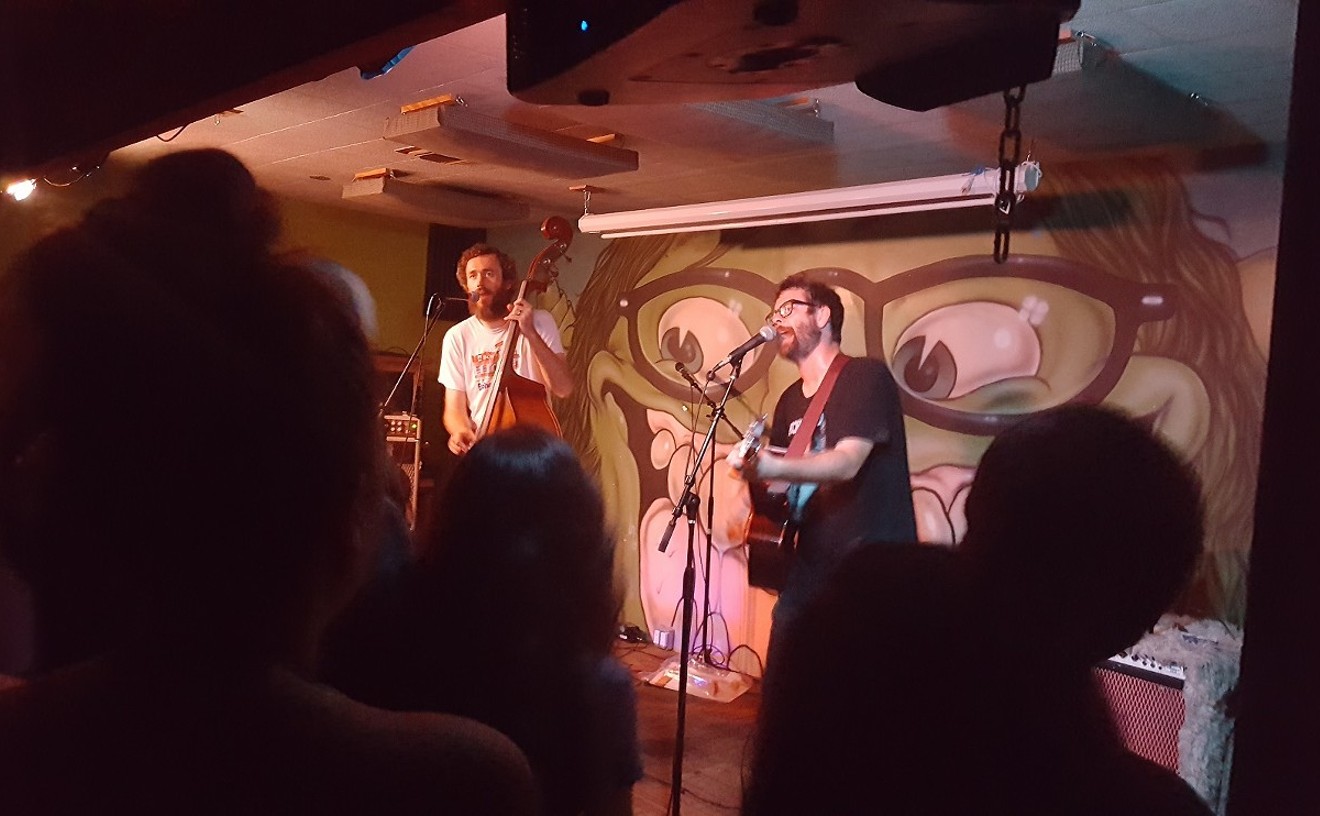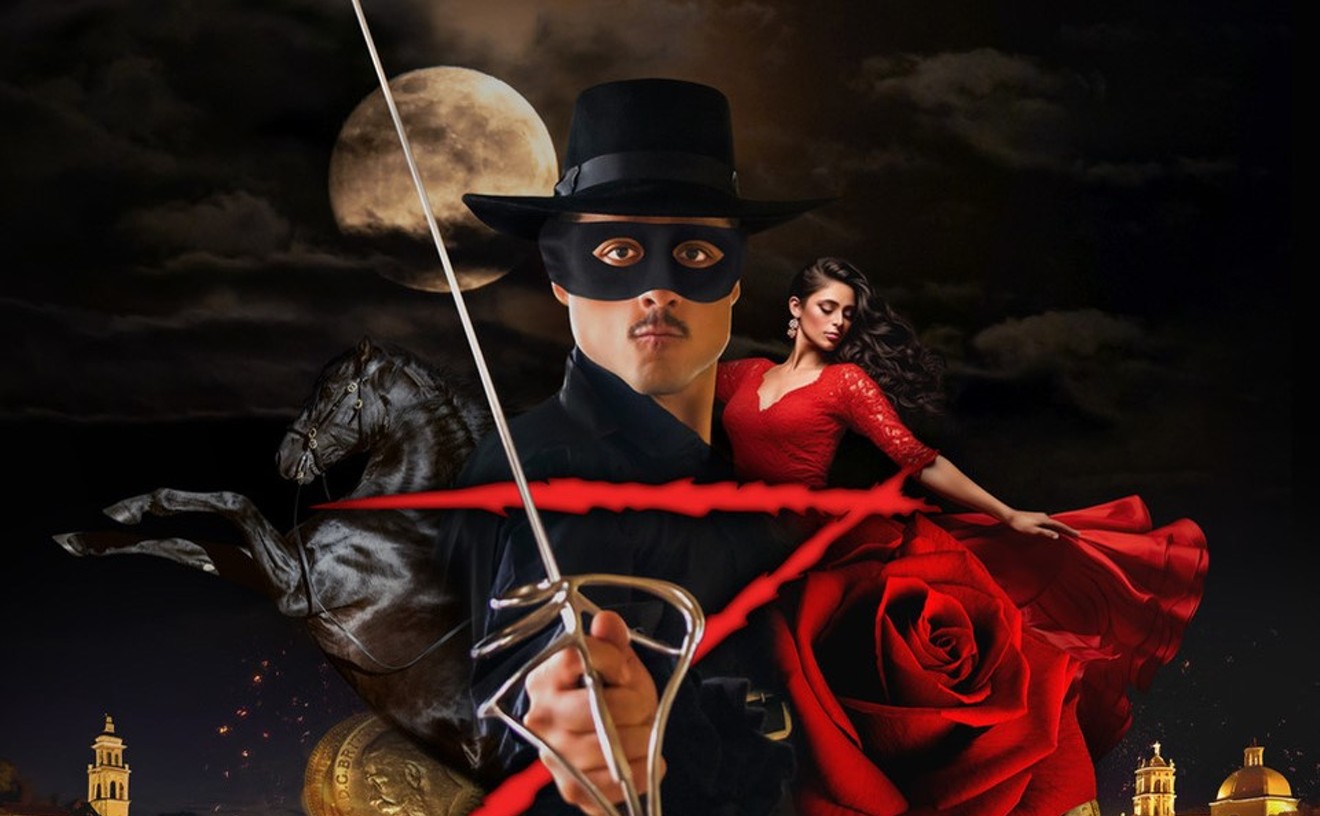Cleage's play finally gets going in the second act, but her characters--who have been threatening to become interesting people--never flower into anyone worth listening to. They become and remain mouthpieces for the playwright's issues, rather than well-formed people we want to care about.
Blues for an Alabama Sky is set in 1930 Harlem, where the Jazz Age is giving way to the Great Depression, and the Harlem Renaissance is fast becoming a memory. Angel Allen (Trish McCall) is a down-on-her-luck nightclub singer and sometime prostitute whose best friend, Guy Jacobs (Timothy McCuen Piggee), is a wanna-be fashion designer with dreams of building frocks for Josephine Baker. Among Angel's suitors is Leland (Adrian Bethea), a Southern gentleman whose wife recently died in childbirth and who believes Angel will be his salvation. Next door, social worker Delia (Kwana Martinez) is falling in love with the womanizing Sam (Johnny Lee Davenport), a doctor who works at Harlem Hospital and performs the occasional abortion.
Cleage's people receive cables from Josephine Baker, attend parties thrown for Langston Hughes, and work for Margaret Sanger; they lounge about discussing the young Adam Clayton Powell's sermons at the Abyssinian Baptist Church, and argue the need for Sanger's family-planning clinics. But Cleage is too lazy to write a historical play (or even one with much purposeful subtext), so the famous folks remain offstage, and we spend the evening instead with a rooming house full of one-dimensional archetypes who recite rhetoric about the issues the author hands them. You know that, when Delia speaks, it will be about family planning, that Leland will only ever talk about women as possessions, and Guy of equality and freedom.
Cleage must have decided she wouldn't be allowed to write another play, so she's crammed this one with every possible Big Issue: Civil rights, homosexuality, birth control, abortion, and feminism are all taken up here.
Instead of fashioning an exciting discussion of any of these topics, Cleage fills her Harlemites with movie-of-the-week speeches that lead nowhere. Because she doesn't draw these people outside the lines of the issues they represent, we lose interest in them quickly. When, late in the play, one character reveals that he's carrying a gun, I thought, yes, shoot someone, anyone, please! Somebody do something!
Cleage provides one interesting turn: Her gay character is neither closeted nor filled with angst over his orientation and--despite some stereotypical flamboyance--he's the most levelheaded of Cleage's people. But if it's refreshing to watch a well-adjusted homosexual in 1930s Harlem, it isn't particularly plausible or necessarily representative of most of the gay men of any color of that era. At least he doesn't die for his sins just before curtain, the usual fate suffered by fictional gays of Guy's era.
Tepid writing aside, there are virtues of this production to be savored. Not the least of them are performances by two of the ensemble cast. Bethea's Leland is a vain but undeniably magnetic villain, and he's never not believable, whether weeping with boyish grief or bellowing with righteous anger. And the gifts that McCuen Piggee brings to his role belie the fact that Guy is little more than an editorial cartoon.
Unfortunately, McCall's performance is too broad and too quirky, full of shading and the kind of moodiness usually reserved for characters more complex than Angel. McCall often appears to be acting to the back of the house, and Center Stage at the Herberger is a very large house indeed. There's little hint of the tragedy that Cleage intends for her heroine, too much of the joie de vivre that a character this pitiful might present, no matter how deluded she may be about her lot in life.
Scenic designer William Bloodgood has done his job not wisely but too well: Although the story takes place in a rundown boarding house in Harlem, its polished wood and ultra-slick rooms are too well-ordered to suggest poverty. Helen Q. Huang's costume designs are authentic, though, for a group of poor but clothes-conscious jazz babies whose friend is a dress designer.
Despite its occasional triumphs, Blues for an Alabama Sky's real achievement is a dubious one: It presents a story that's both overwritten and half-told. The closest Cleage comes to a revelation--that blacks frustrated by societal restraints may turn on one another--has been rather widely reported, and by more interesting folks than the ones we meet here. There's little action until the last few minutes of this nearly three-hour-long play, and only a lot of running off at the mouth until then.
Blues for an Alabama Sky continues through Saturday, February 20, at the Herberger Theater Center, 222 East Monroe Street.










